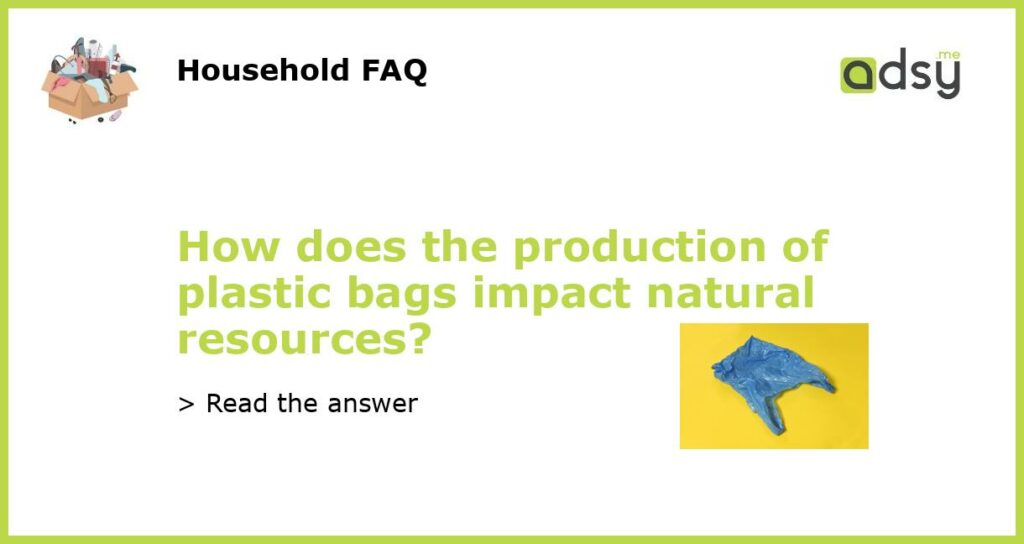Introduction
Plastic bags have become an integral part of our daily lives. They are used for various purposes, from carrying groceries to packaging products. However, the production of plastic bags is not without its consequences. The manufacturing process and disposal of plastic bags have a significant impact on natural resources. In this article, we will explore the ways in which the production of plastic bags affects our environment.
Extraction of Natural Resources
One of the major environmental impacts of plastic bag production is the extraction of natural resources. Plastic bags are primarily made from polyethylene, which is derived from crude oil. The extraction of oil involves drilling, which can disrupt ecosystems and lead to habitat destruction. Additionally, the process of refining crude oil into plastic involves the use of chemicals and energy-intensive processes.
Energy Consumption
The production of plastic bags requires a significant amount of energy. From the extraction of raw materials to the manufacturing process, energy is needed at every step. The energy consumption associated with plastic bag production contributes to greenhouse gas emissions and climate change. The burning of fossil fuels for energy releases carbon dioxide and other pollutants into the atmosphere, leading to air pollution and global warming.
Waste Generation and Pollution
Plastic bags are notorious for their long lifespan and slow decomposition rate. When plastic bags are not properly disposed of, they can end up in landfills or find their way into rivers, oceans, and other natural environments. This leads to a significant amount of waste generation and pollution. Plastic bags can take hundreds of years to decompose, and during this time, they release harmful chemicals into the environment. The pollution caused by plastic bags poses a threat to wildlife, as animals often mistake them for food and can become entangled in them.
Alternatives to Plastic Bags
Fortunately, there are alternatives to plastic bags that have less impact on natural resources. One such alternative is reusable bags made from materials like cotton or canvas. Reusable bags can be used multiple times and significantly reduce the need for single-use plastic bags. Another option is paper bags, which are biodegradable and have a lower environmental impact compared to plastic bags. Many countries and cities have also implemented policies to reduce the use of plastic bags, such as imposing fees or bans on single-use plastic bags.
The production of plastic bags has a significant impact on natural resources. From the extraction of oil to the energy consumption and pollution caused by the manufacturing process, plastic bags contribute to environmental degradation. It is essential for individuals, businesses, and governments to take steps towards reducing the use of plastic bags and adopting more sustainable alternatives. By doing so, we can help protect our natural resources and create a healthier environment for future generations.






